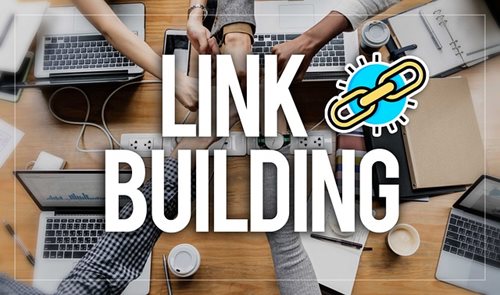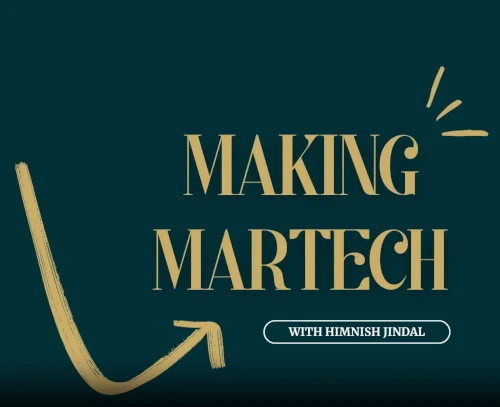Get your free consultation today!
Share with your Colleagues
Categories
ROI Calculator
Moonstone Interactive is the only San Francisco Bay Area web design firm and Internet Marketing expert that offers a free online ROI Calculator
Author: Steve Herz

There are two fundamental factors that Google considers in ranking websites on its search engine results pages (SERPs): on-page SEO and off-page SEO. On-page SEO involves techniques to optimize your website's content, structure, and other aspects. Off-page is about building a linking profile. The ultimate goal is to provide visitors with the most relevant experience maximizing the probability that they will convert into paying customers, leads, or subscribers.
What is off-page SEO?
Off-page SEO is a bit different from other forms of search engine optimization because it deals with factors that have less to do with your site. The number of social media followers and the quantity and quality of citations represent the reach of your content marketing efforts. These factors can affect how high your website ranks in Google's search results. Make sure to keep track of this information and take action accordingly.
You might need to make more effort if your competitors have more followers or better links, but the reward might be well worth it. Your visibility can increase and generate more leads and sales if you employ the right off-page SEO strategies. When it comes to off-page SEO, you don't want to overlook any aspect of your digital marketing campaign. Link-building is usually an integral component of off-page SEO. Still, too many links pointing back to your site are not always beneficial. Having too many backlinks coming from low-quality websites may hurt your website rankings in the future. So monitor where all your external backlinks come from to ensure you don't make risky moves.
Why do you need it?
Search engine optimization aims to get visitors to your website and convert them into customers. However, most sites compete with websites in their niche and search engines.
There are a few different ways you can achieve off-page SEO, some of which you can accomplish on your own and some of which will require the help of someone else. It would be best to build trust with the search engines to rank well for a particular keyword.
This approach means creating quality content, having a good domain history, and establishing enough links pointing to your website. An excellent way to ask for links is to find authoritative pages within your industry or company that link back to you. Then contact them and ask them to link back to you. For the best results, provide details about what makes your company/site different from others in the industry. Reference a testimonial or case study to show why they should link back to you (based on what they need).
Free of costs places to get links
There are many free and low-cost ways of getting links that will help your site rank better with Google. These include:
- Provide great content that is relevant to your niche and has the potential to go viral on social media sites like Facebook or Twitter, thus generating links organically through people sharing your content online
- Participate in forums and discussion boards related to your topic of interest
- Connect with other bloggers within your field so you can cross-promote each other's posts.
- Share a post from another blogger in your industry, giving credit for the idea and linking back to the original blog post
- Create a podcast and mention influential people in your field within your episodes, giving credit and linking back to them when possible
- Write a guest post for another website that is related to your niche
- Find relevant and complimentary tweets using Twitter search or social media monitoring tools.
- Join relevant and active Facebook groups related to your topic
- Beginning a YouTube channel, sharing related videos, trying to connect with as many people in the field as possible, giving credit, and linking back to other YouTubers when applicable.
Sponsored backlinks
The first thing you need to do is to research the different providers of sponsored backlinks and how they work. Various services offer other packages and prices, so it's best to find one that meets your needs. If you're wondering whether a particular service or product is good enough for you, search for the reviews by other users and contact the company directly.
Once you have narrowed your search down to the company that best suits your needs, you'll need to create an account with them. They will give you step-by-step instructions on how to post links on social media platforms. They will also clarify how long it takes for them to appear on the search engine results page (SERPs). Remember that some companies require you to complete specific tasks before they can provide their backlink service, such as writing reviews of products or creating content.
Step 1. Finding your audience
Off-page SEO begins with finding your audience. If you don't already have one in mind, think about what keywords your type of business might be searched for when people are searching.
In the next step, decide who will create the content and where they will post it. It is best if someone with relevant industry experience writes the content, as they will be able to understand your target audience's needs. By including social media buttons, your content can be shared with your followers, generating more exposure for your company and yourself.
It is also a good idea to include a blog on your website and information that will encourage readers to return to your site regularly and subscribe to your newsletter. Make sure each piece of content covers different topics so visitors who return often look forward to something new!
Step 2. Crafting Content in Context
When it comes to off-page SEO, your content is the key. You want to create relevant, helpful, and exciting content attracting links from other websites. But you don't want these links or mentions to be spammy. You have to know what your audience wants and how they want it presented so that they engage with it and share it. Suppose you create any content, from a website or social media platform to a video or photo. In that case, you want your content (especially your headline) to be attractive enough for other users to share with their followers. The more shares and likes you get, the more exposure it will give your business and, therefore could attract new customers. You'll gain even more visibility if people mention or quote your brand in their posts.
Step 3. Buying Links vs. Creating Them
Your ultimate goal is to have articles with higher-than-average quality and content that will attract links. To do this, you should create a series of articles about your industry of choice, with one that stands out among the others. Publish the document, and then ask an acquaintance with knowledge of the subject matter to review it and offer feedback. They may spot something you missed, or they may have ideas on how you can make it better. Before this, find other sites similar to yours and see if they will also publish your post. This approach is called guest posting, and while it is more time-consuming than buying links, it may generate many more links in the long term.
Step 4. Setting Up Your Link Building Campaign
You can use any link-building strategies to create links that rank you higher on the search engine results pages. You should not just rely on one type of link building. To get the best results, combine different links and content types. Use this list as a starting point and build your campaign around it. It's a great way to build backlinks and content simultaneously.
If you write guest posts for high-quality, high-domain authority sites, there's a good chance they'll link back to your site. When people come across your new blog post through social media or email, suggest they share it with their connections. These shares are indirect link-building and can also provide social signals that might boost your site ranking. Additionally, please be sure to list your website on directories online.
Step 5. Measuring your results
The most crucial part of any SEO campaign is measurement. You have to know what you are getting for your time and money. Otherwise, it's all for naught. You'll want to keep track of four key metrics: click-through rate (CTR), bounce rate, conversion rate, and engagement rate. These metrics measure different things, but they're all important in their way.
CTR measures how many people clicked your result after seeing it on the SERP. A good CTR means you rank high enough on the page to be seen by many people, who then choose to engage with your site by clicking through. A low CTR means that either not many people visit your results or not enough people like what they see when they do. The bounce rate is also significant because it tells you how long visitors stay on your site before clicking out. A high bounce rate may mean that visitors don't like what they find or can't find anything at all, or maybe it just means that visitors found what they were looking for and left. Always be sure that the links you acquire lead to perfectly optimized pages on your site. How to be sure? See the first part of this article: On-Page SEO: What It Is and How to Do It.
Conclusion
Let's recap what we just covered so you can get back to your marketing tasks with a better understanding of the importance of off-page SEO.
- Off-page optimization increases your website's relevance by trying to get other sites and web admins to link to your website.
- Links are the most crucial factor for search engines when determining to rank.
- Therefore, you must obtain links from authoritative sites with high domain authority.
- Link building requires patience and perseverance, do it strategically.
Do you need help creating your website as one that others to reference with a link? Contact us for more details.
.webp?ext=.webp)

